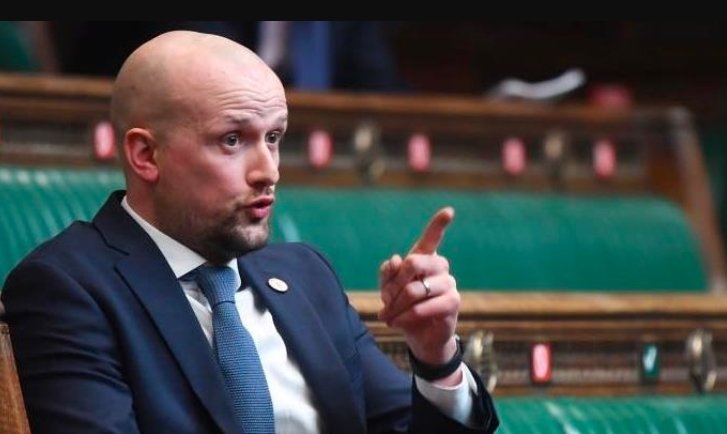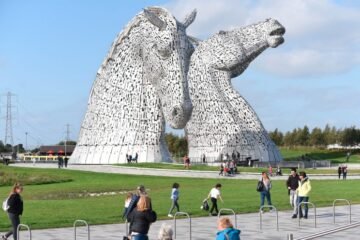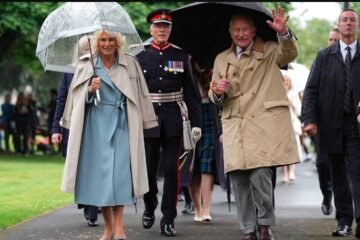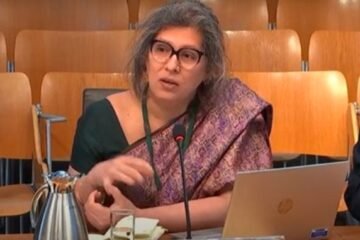From councillor to leader
Stephen Flynn, the MP for Aberdeen South, has completed his first year as the leader of the Scottish National Party (SNP) at Westminster. He took over the role from Ian Blackford, who stepped down in December 2022 amid rumours of a leadership challenge from Flynn.
Flynn, who was born in Dundee and raised in Brechin, studied politics at Dundee University before moving to Aberdeen. He married his wife in 2014 and was elected to Aberdeen City Council in a by-election the following year. He became the SNP group leader on the council in 2016 and held the position until he became an MP in 2019.
He won Aberdeen South from the Conservatives in the 2019 general election, a seat that has changed hands four times in the last four elections. He was appointed as the SNP’s business, energy and industrial strategy spokesman at Westminster and quickly made a name for himself as a vocal critic of the UK government’s policies on Brexit, austerity and the cost of living.
A fresh approach
Flynn announced his intention to run for the SNP Westminster leadership in December 2022, after Blackford confirmed his resignation. He faced competition from Alison Thewliss, the MP for Glasgow Central and a close ally of First Minister Nicola Sturgeon. Flynn won the vote of the SNP MPs by 26 to 17 and appointed Mhairi Black, the MP for Paisley and Renfrewshire South, as his deputy.
Flynn said he aimed to “build on the legacy” of Blackford, who he praised as a “giant of the Scottish independence movement”, and to work closely with Sturgeon. He also said he and Black could offer a “fresh approach” at Westminster that people in Scotland would “certainly buy into”.

He faced his first Prime Minister’s Questions less than 24 hours after being elected, where he challenged Chancellor Rishi Sunak on the impact of the cost of living crisis and Scotland’s right to choose its future. He has since led the SNP’s opposition to the UK government’s plans to increase National Insurance, cut Universal Credit and scrap the £20 uplift, and reduce overseas aid. He has also called for a second referendum on Scottish independence, arguing that the UK government has no mandate to deny Scotland’s democratic will.
A year of achievements
Flynn has been praised by his colleagues and supporters for his performance as the SNP Westminster leader. He has been described as “snappy”, “vibrant” and “effective” by SNP MP Stewart Hosie, who said Flynn had a “rare gift of being able to communicate difficult things in a really effective way”. He has also been commended by Sturgeon, who called him and Black a “truly formidable team” and said she was looking forward to working with them both.
Flynn has also highlighted some of the achievements of the SNP MPs in the past year, such as:
- Securing a £1.1bn increase in the Scottish budget through the Barnett formula, as a result of the UK government’s spending review
- Forcing the UK government to U-turn on its plans to scrap the £20 uplift for Universal Credit claimants in Scotland, after a sustained campaign by the SNP
- Exposing the UK government’s failure to deliver on its promises of extra funding for Scotland’s farmers and fishermen after Brexit, and demanding full compensation for the losses suffered by the sectors
- Holding the UK government to account for its mishandling of the Covid-19 pandemic, and calling for more powers and resources for the Scottish government to tackle the health and economic crisis
- Supporting the Scottish government’s efforts to tackle the climate emergency, and urging the UK government to match Scotland’s ambitious targets and actions ahead of the COP26 summit in Glasgow
A year of challenges
Flynn has also faced some challenges and controversies in his first year as the SNP Westminster leader. He has been accused by some of his critics of being too confrontational, divisive and disrespectful towards the UK government and other parties. He has also been criticised by some of his own party members for being too loyal to Sturgeon and not representing the views of the wider SNP membership.
Some of the issues that have caused tension and debate within the SNP include:
- The timing and strategy of a second referendum on Scottish independence, and whether the SNP should seek a Section 30 order from the UK government or pursue a Plan B
- The SNP’s stance on the European Union and whether Scotland should rejoin the bloc after independence, or seek a different relationship
- The SNP’s position on the Gender Recognition Act and whether it should reform the law to allow people to self-identify their gender, or maintain the current system that requires medical evidence
- The SNP’s response to the allegations of sexual misconduct against former SNP chief whip Patrick Grady, who was suspended from the party after an internal investigation found he had breached the code of conduct
Flynn has said he is committed to listening to and engaging with all views and perspectives within the SNP, and to maintaining the unity and cohesion of the party. He has also said he is confident that the SNP will win the next general election in Scotland, and secure a mandate for a second referendum on independence.
A year of hope
Flynn has said he is optimistic about the future of Scotland and the SNP, and that he believes Scotland will become an independent country in his lifetime. He has said he is inspired by the vision of a fairer, greener and more prosperous Scotland that the SNP has set out, and that he is determined to make it a reality.
He has also said he is hopeful that the people of Scotland will choose independence in a second referendum, and that they will reject the “broken” and “corrupt” Westminster system that has failed them. He has said he is ready to lead the SNP at Westminster in the final push for independence, and to challenge the UK government on every front.
He has said: “Scotland deserves better than this Tory government that is dragging us down. Scotland deserves the right to choose its own future. Scotland deserves to be an independent country. And I will not rest until we make that happen.”


















